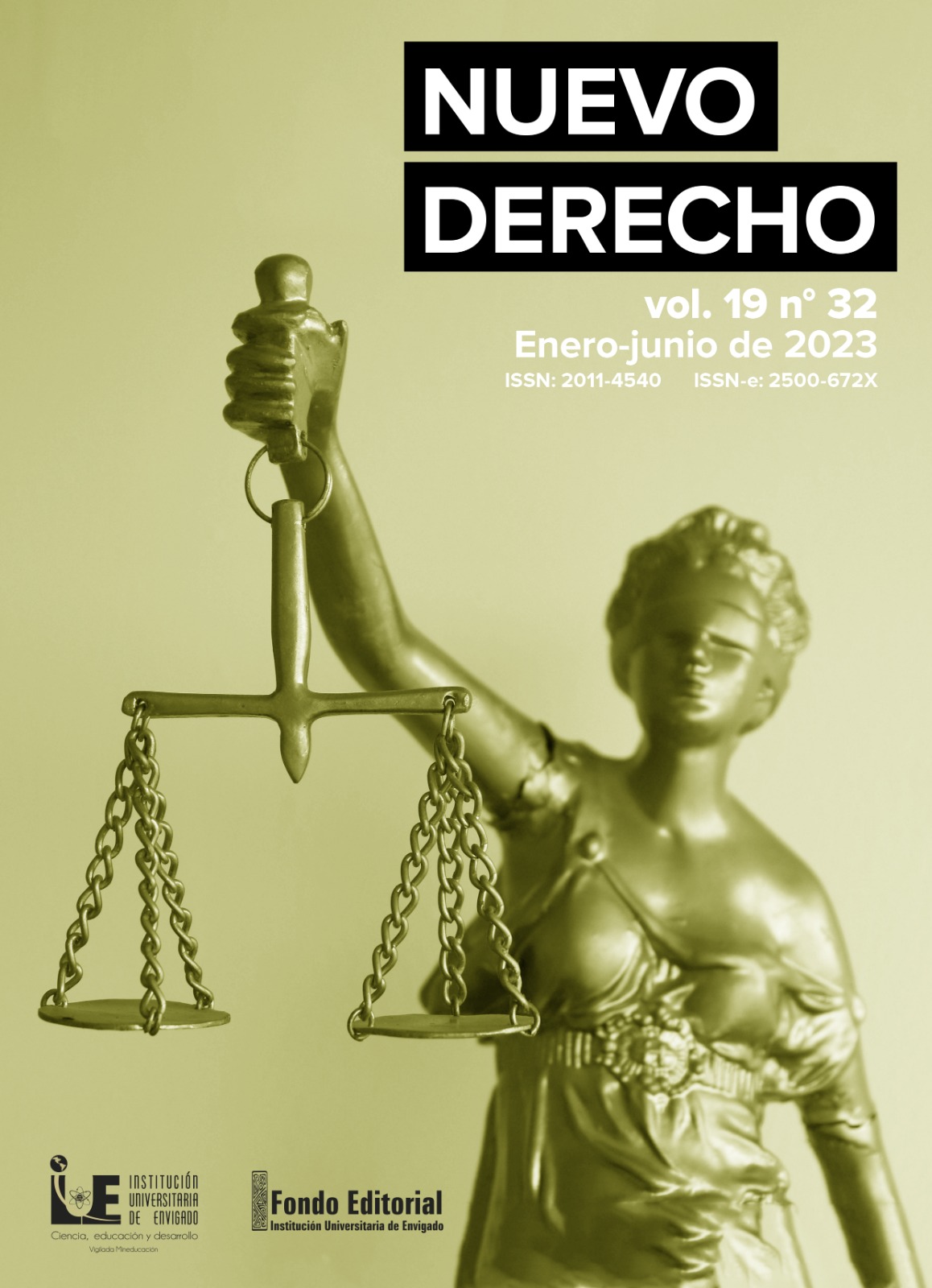Does the defense of rights justify the politicization of justice?
DOI:
https://doi.org/10.25057/2500672X.1504Keywords:
politicization, judicialization, legislative power, Supremo Tribunal Federal, constitutional adjudicationAbstract
This paper questions the reasonableness of judicial activism in the defense of fundamental rights, whether it can be used to justify the politicization of judicial activity in Brazil, and whether to some extent it is beneficial and does not violate fundamental freedoms and guarantees. The hypothetico-deductive method and research in books, scientific articles, legislation and jurisprudence are used to analyze the bilateral process of judicialization of politics and politicization of justice, with emphasis on the second aspect, which has shifted the axis of force between the powers of the State, as it is directly linked to the process of valorization of constitutional adjudication and valorization of the supreme courts in the political scenario. The importance of the constituent power and its interference among the powers of the State is evaluated. It seeks to establish the limits of the politicization of justice, analyzing two specific cases in rulings of the Federal Supreme Court on issues related to women's rights concerning abortion and those of the elderly concerning reinstatement, in which the court took different directions in terms of the exercise of legislative activity. From the research it can be concluded that the current constitutional model and judicial activism stimulate the legislative activity of the Judiciary, as a rule, guided by the political bias of the actors involved, which compromises the foundations of democracy and gives rise to despotic practices on the part of the courts.
Author Biography
Helimara Moreira Lamounier Heringer, Universidade de Ribeirão Preto
Doctoral Student and Master in Collective Law and Citizenship, at the University of Ribeirão Preto -UNAERP. CAPES Scholarship
Professor of Law at the State University of Minas Gerais – UEMG
ORCID: https://orcid.org/0000-0002-3593-5223
Correo: helimarah@hotmail.com
References
Barroso, L. R. (2005). Neoconstitucionalismo e Constitucionalização do Direito. Revista do Direito Administrativo, 240, 1-42. http://bibliotecadigital.fgv.br/ojs/index.php/rda/article/view/43618/44695
Barroso, L. R. (2008). A Americanização do Direito Constitucional e seus Paradoxos: Teoria e jurisprudência constitucional no mundo contemporâneo. Cadernos da Escola de Direito e Relações Internacionais, 2(9), 258-301. https://portaldeperiodicos.unibrasil.com.br/index.php/cadernosdireito/article/view/2621
Dahl, R. A. (1957). Decision-Making in a Democracy: The Supreme Court as a nacional policy-maker. Journal of Public Law, 6, 279-295. http://epstein.wustl.edu/research/DahlDecisionMaking.pdf
De Quieroz Barbosa, L. V. & Carvalho, E. (2020). O Supremo Tribunal Federal como a rainha do jogo de xadrez: fragmentação partidária e empoderamento judicial no Brasil. Revista de Sociologia e Política, 28(73), 1-22. doi:10.1590/1678-987320287307pt
Faria, J. E. (2004). O sistema brasileiro de Justiça: experiência recente e futuros desafios. Estudos Avançados, 18(51), 103-125. https://www.scielo.br/pdf/ea/v18n51/a06v1851.pdf
Ferrejohn, J. (2002). Judicializing Politics, Politicizing Law. Law and Contemporary Problems, 65(3),41-68. https://scholarship.law.duke.edu/cgi/viewcontent.cgi?article=1258&context=lcp
Groppali, A. (1968). Doutrina do Estado. (P. E. Queiroz, Trans.). Saraiva.
Jellinek, G. (2004). Teoria General del Estado. Fondo de Cultura Económica (original publicado 1900).
Kelsen, H. (2003). Jurisdição Constitucional. (A. Krug, E. Brandão, & M. E. Galvão, Trans.). Martins Fontes.
Koerner, A. (2013). Ativismo Judicial? Jurisprudência constitucional e política no STF pós-88. Novos Estudos, (96), 69-85. https://www.scielo.br/pdf/nec/n96/a06n96.pdf
Loughlin, M. (2012). The Concept of Constituent Power. http://law.uvic.ca/demcon/2012%20readings/Constituent%20Power%20(Victoria%20paper).pdf
Lyder Hermansen, S. S. (2020). Building legitimacy: Strategic case allocations in the Court of Justice of the European Union. Journal of European Public Policy, 27(8), 1215-1235. https://doi.org/10.1080/13501763.2020.1714697
Montesquieu. (2000). O espírito das leis (2ª ed.). (C. Murachco, trad.). Martins Fontes (original publicado en 1748).
Sarmento, D. (2011). O neoconstitucionalismo no Brasil: riscos e possibilidades. En A. L. Fellet, M. Novelino & D. G. Paula, As novas faces do ativismo judicial (1ª ed., pp. 73-113). Jus Podivm.
Silva, J. A. (2002). Curso de Direito Positivo. Malheiros.
Supremo Tribunal Federal de Brasil. (1996). Habeas Corpus 74 051 [Relator: Min. M. Aurelio].
Supremo Tribunal Federal de Brasil. (2016). Habeas Corpus 124 306 Rio de Janeiro.[Relator: Min. M. Aurelio].
Supremo Tribunal Federeal de Brasil. (2016). Recurso Extraordinario 661 256 Santa Catarina [Relator: Min. A. C. De Souza].
Supremo Tribunal Federal de Brasil. (2019). Ag. Reg. Habeas Corpus 157 627 Paraná [Relator: Min. E. Fachin].
Supremo Tribunal Federal de Brasil. (2020). Acción Directa de Incontstitucionalidad 5002 Minas Gerais. [Relatora: Min. C. Lucía].
Supremo Tribunal Federal de Brasil (2023). Corte Aberta. https://transparencia.stf.jus.br/extensions/acervo/acervo.html
Pereira Siqueira, D. & Correa Pavesi Lara, F. (2019). Constitucionalismo, Acesso à Justiça e a Judicialização: uma leitura a partir da efetivação dos direitos da personalidade. Revista Paradigma, 28(3), 77-94. http://revistas.unaerp.br/paradigma/article/view/1778
Tocqueville, A. (2012). Democracy in America (Vol. I). (E. Nolla, Ed., & J. T. Schleifer, Trans.) Liberty Fund (original publicado en1835).
Weterman, D. (2019, 29 de marzo). Toffoli defende que reformas diminuam quantidade de textos na lei. UOL Economia. https://economia.uol.com.br/noticias/estadao-conteudo/2019/03/29/toffoli-defende-que-reformas-diminuam-quantidade-de-textos-na-lei.htm
How to Cite
Downloads
Downloads
Published
Issue
Section
License
Copyright (c) 2023 Nuevo Derecho

This work is licensed under a Creative Commons Attribution-NonCommercial-ShareAlike 4.0 International License.
Authors should declare that the article is an original work that has not been totally or partially published in any print or electronic media, which has not been submitted simultaneously to another publication and that is not currently under evaluation in another publication. On the other hand, I leave (we) evidence that the statements made therein are the sole responsibility of the / the authors / is.
All data and references to already published material are properly identified with their respective credit and included in the bibliographical notes and appointments that stand out as such and, in cases that require it, I have the proper authorizations for those with the respective rights; in case of any dispute or claim relating to intellectual property rights, we take responsibility exonerating responsibility to Nuevo Derecho.
If the article is approved for publication, the authors transfer the copyright to the journal New law to publish, distribute electronic copies and included in indexing services, directories or databases of national and international data on Open Access under the Creative Commons 3.0 Attribution-Noncommercial (CC bY-NC-SA) by which the authors retain their copyrights and allow them to others copy and distribute your work provided they recognize the corresponding authorship and the work is not used for purposes commercial.
Therefore, new law does not retain the rights to reproduce or copy (copyright), so the authors will have the final versions, to disseminate them in institutional repositories, personal blogs or any other electronic or print media, with the sole condition to make mention of the original source of publication, in this case Nuevo Derecho.

| Article metrics | |
|---|---|
| Abstract views | |
| Galley vies | |
| PDF Views | |
| HTML views | |
| Other views | |




